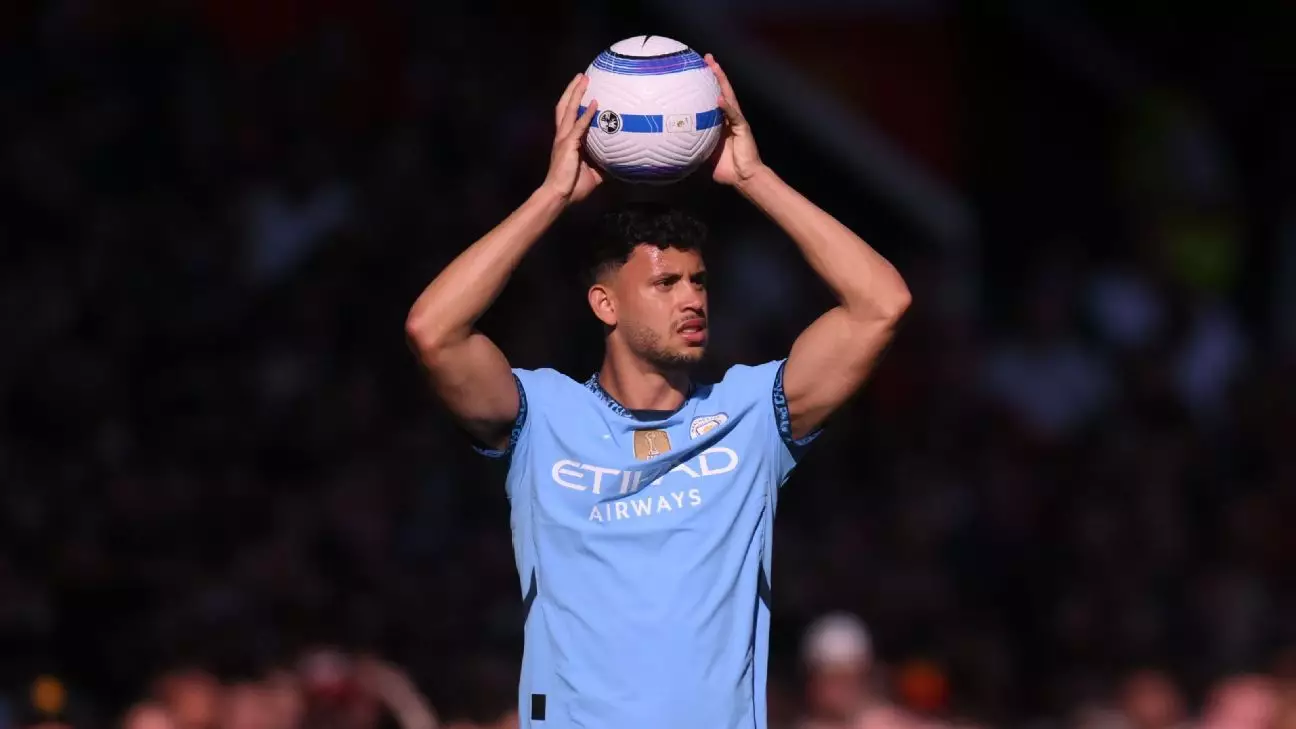In a surprising turn of events, Manchester City manager Pep Guardiola has suggested that Matheus Nunes, previously a midfielder, is better suited for the full-back position. This reclassification follows Nunes’ transfer to Manchester City from Wolverhampton Wanderers for a hefty £53 million ($70 million) amid high expectations to fill the shoes of the departed Ilkay Gündogan. The question arises: Is Guardiola’s assessment a reflection of Nunes’ capabilities or a lack of suitable talent in defense?
Nunes, at 26, has accrued 62 appearances with City, predominantly in midfield. Despite this experience, Guardiola claims that Nunes lacks the cerebral finesse typically associated with top-tier midfield play. His comments are not merely casual observations; they signal a significant tactical pivot that speaks volumes about Guardiola’s adaptation strategies. By seconding Nunes to right-back, Guardiola may inadvertently be undermining the player’s confidence, suggesting a permanence to the shift instead of an exploratory adaptation.
The Right-Back Dilemma at Manchester City
With Kyle Walker’s departure on loan to AC Milan, the dilemma for Manchester City was finding a reliable replacement at right-back. Guardiola’s shift of Nunes to this position poses intriguing questions: Can a player, historically trained as a midfielder, successfully pivot into a defensive role, especially at a title-challenging team like City? Guardiola’s faith in physical attributes as a compensatory factor raises important tactical considerations but also highlights a potential oversight in nurturing a player’s full technical arsenal.
While Nunes demonstrated some defensive prowess in a recent match against Manchester United — blocking potentially dangerous crosses — his prior experience in the midfield should not be disregarded. The essential skills of decision-making and spatial awareness that distinguish a competent midfielder are not easily interchangeable with the instincts required for successful defending. Such comments from Guardiola could easily be perceived as overlooking Nunes’ potential retention of midfield capabilities, which might benefit the team’s fluid playstyle more effectively than a relegation to defense.
Adaptability in Modern Football
The rapid evolution of player roles in contemporary football underscores the need for adaptability. Players are being molded into multi-functional assets; however, this demands a careful balance. The transition often requires not only physical adjustment but also mental shifts that can take time to develop. Guardiola’s knack for tactical innovation has historically set precedents, but labeling Nunes as incapable of performing a central role could cultivate a self-fulfilling prophecy where he restricts his own growth, resulting in lost potential for both Nunes and Manchester City.
While Guardiola expresses surprise at Nunes’ adaptation to right-back, it remains to be seen how this will unfold throughout the season. With an already established group of players pugging it out for defensive positions, including the newly signed Abdukodir Khusanov and Vitor Reis, Nunes’ continued presence in the starting lineup would indicate a strategic gamble that either pays off with new versatility or reveals a flaw in a misguided reshaping of talent.
As Guardiola continues to navigate the challenges of the ongoing season, his decisions will undoubtedly shape not only the structure of the team but the trajectories of his players’ careers. The transformation of Matheus Nunes serves as a compelling case study in the quest for adaptability in modern football, where players inhabit fluid roles more than ever before.


Leave a Reply